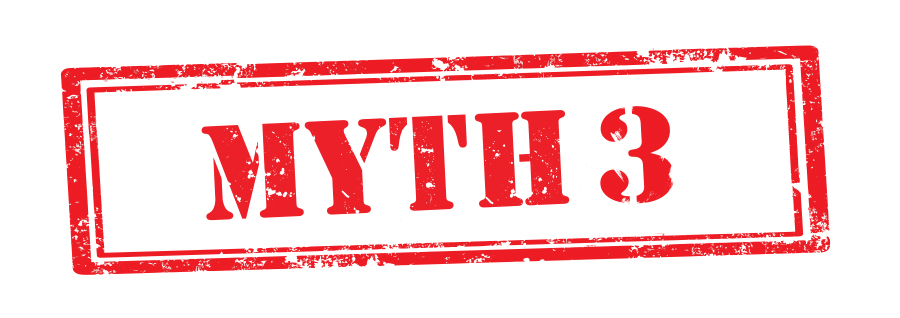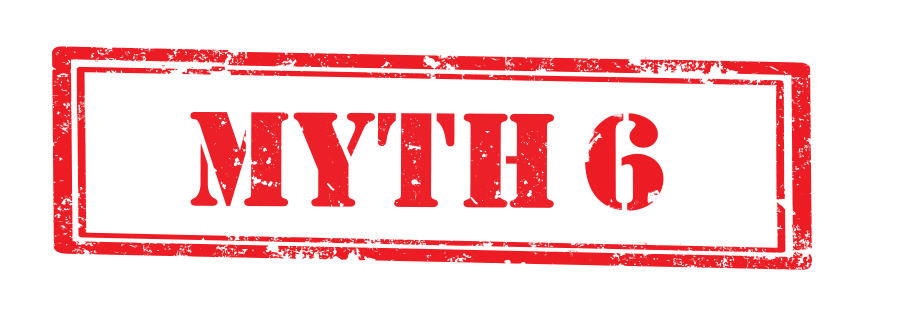|
management
 Trade show rookies often have to learn by trial and error. To keep these greenhorns from making the same mistakes I once did, here I'll debunk six common misconceptions held by exhibit-marketing newbies. By Joan Webster
When I joined ACTech North America Inc. as a sales assistant a little more than five years ago, I knew I'd have to wear many hats, as that comes with the
territory when you work for a small company. What I didn't know was that I'd be in charge of exhibit marketing. Coordinating the trade show program wasn't in the job description, and I didn't have any exhibiting experience on my résumé. Sound familiar?
Whether you're an industry veteran or a first-time exhibitor, you know that mistakes are inevitable. Many of us come from varied backgrounds with little to no trade show experience. So when that first show hits our calendar, we panic just a little bit before hunkering down to figure it out. And we learn by trial and error. But one of the biggest mistakes is buying into any one of the six exhibit-marketing myths I uncovered during my first few years in the industry. While there's a nugget of truth to most of them, putting too much faith in any adage is likely to trip you up. And even though it's easy to make assumptions based on past experiences or the well-meaning advice of others, we all know what happens when you assume. So to help you survive your first steps into the world of face-to-face marketing, I've compiled six industry fallacies that far too many rookies fall victim to in the hope that my advice may enable you to sidestep these exhibit-marketing misconceptions. 
I get it. Show manuals aren't exactly riveting reads, but there are simply far too many variables between events to not digest every detail in these all-important tomes. They offer practically everything you need to know about the show, including crucial deadlines and order forms for things such as in-booth electrical, cleaning, pipe and drape, etc. Not every item in the manual will apply to your program, but going through the motions can serve as a secondary checklist that might alert you to things you didn't even know you needed. For example, you might have ignored the section on rental furniture because you're only planning a small booth and have everything you need. However, thumbing through the guide may prompt you to double check and make certain that you won't need to rent a literature rack for marketing materials or chairs and a cafe table for that conversation area in the corner. Similarly, simply skimming the lead-retrieval section might alert you to the fact that the show offers both standard badge scanners and a lead-retrieval app, which might prompt you to survey staffers regarding which they'd prefer. Also check to see if any form of supplemental liability and/or property insurance is required above and beyond your company's standard insurance coverage, as figuring out these details as soon as possible allows you to cross things off your to-do list and take advantage of early bird discounts.
FACT 1: Every trade show is unique, and each show manual contains important information specific to that event. Exhibit managers who neglect to carefully read every show manual do so at their own peril.

As exhibit managers, we have to pinch pennies. But sometimes it's worth spending a little more, and direct flights are typically worth their weight in gold. Granted, it won't always be possible to avoid connections, but book direct flights whenever you can, especially for anyone heading out for booth setup. Doing so eliminates the risk of missed connections and reduces travel stress for your colleagues. If your company expense policy allows, book flights using an airline credit card to maximize perks and mileage accrual for your department, and suggest that everyone enroll in frequent-flyer programs. I also urge staffers to sign up for Transportation Security Administration (TSA) precheck – or Global Entry from U.S. Customs and Border Protection if they attend international shows – to further ease the travel burden. And I've found it's efficient and effective to proactively arrange group transfers for all members of my team to and from the airport. That way staffers don't have to wait in the taxi line when they land. It's a nice gesture, and the savings you'll incur versus letting them all grab individual cabs will likely more than offset the difference between that budget flight with two connections and the more expensive direct fare.
FACT 2: Although sometimes higher in price, booking direct flights for staffers reduces stress and improves the odds of on-time arrivals.

The truth is that many official show hotels have higher room rates than other properties in the area, often due to their locations or other amenities. But much like airfare, scouring for a less-costly hotel to save $20 on each room night isn't always the best option for you or your exhibit staff. When I first started, my default was to choose the cheapest accommodations in an attempt to save money. But the most inexpensive hotels were also the farthest away from the convention centers. So my team had to rent cars, take taxis, rack up ride-share fees, or navigate public transportation to and from the convention center or event venue every single day. They also missed out on impromptu networking opportunities, and their days were longer because of the commute. After a few shows, I crunched the numbers and realized that it actually saved money in the long run to pay more up front and book rooms at hotels within walking distance of the event. What's more, keep in mind that staffers working trade shows are away from their families for three to four days at a time, so any conveniences you can afford go a long way toward keeping them content. In other words, what you may save by reserving rooms at a budget hotel without a fitness center that's 30 minutes away from the convention center may cost you when it comes to team morale on the show floor.
FACT 3: Reserving rooms at official show hotels often costs more up front, but keeping your team within walking distance of the venue will negate the need for rental cars, taxis, ride-shares, and public transit.

Yes, finding one partner you can trust and using it for all of your shipping needs has its benefits. For example, my contact at the carrier I use most frequently helps me to troubleshoot whenever something goes wrong, coaches me on how to get the best rates (e.g., whether it's more cost effective to ship to an advance warehouse or straight to the venue, or ship from one show directly to the next), and calls upon his years of industry experience whenever I encounter a new dilemma that leaves me flummoxed. It's obviously less work to stick with a known quantity than to bid out each and every job, but you may end up paying a higher premium for that consistency than you realize because, believe it or not, the carrier that is cheapest for one show may be the most expensive for another. In other words, it doesn't hurt to get quotes from a couple of different exhibit-shipping companies rather than assuming your incumbent partner's rates (and level of service) are competitive with the market. Doing so enabled me to evaluate a few firms, check online reviews, and make more informed decisions. In fact, I've used three different companies during my short tenure at ACTech, as the same company is not always the most feasible option due to the specifics of my shipping needs for a particular show, and I've been satisfied with the service I've received from all three.
FACT 4: While it's beneficial to have a strong relationship with a particular shipping company, your go-to firm may not always be the cheapest. Therefore, it never hurts to get quotes from multiple carriers.

It's such a feat to get all the logistics squared away for a show that sometimes booth staff considerations are inadvertently left to the last minute. Don't let this happen. Evaluate the staff going to any given show and offer a short refresher course on booth etiquette and the company's key messages. Even if your staffers are trade show pros, it's important to reiterate expectations and develop measurable objectives for their performance before the exhibit hall opens. After all, your messaging may have changed since they last traveled to a show, the event may be targeting a different audience, the lead-retrieval system is unlikely to be the same, and any new demos or technology you've added to the booth will be completely foreign to them. So treat trade show attendance as a privilege – something that is earned. And get buy-in from executives and stakeholders to encourage (or require) attendance at any pre-show training you conduct. Then, after the show closes, hold a post-mortem. Discuss whether your objectives were met and why or why not. Maybe the attendees didn't align with your target audience or the show just wasn't what it used to be in terms of overall value or relevance. Make note of any feedback and use it to inform decisions on which shows to attend in the coming year. If your company didn't get what it needed to out of the event, perhaps it isn't worth the continued investment.
FACT 5: It is essential to hold staff training sessions before every trade show to ensure that all booth reps – including seasoned veterans – are up to speed on the particulars and goals of each event.

There are definitely right and wrong ways to do things when it comes to exhibiting, but the best way to learn is by trial and error. Exhibiting isn't a one-size-fits-all endeavor. As a result, even when you finally accrue some bona fide industry experience, there's no guarantee that experience will be applicable to the upcoming events on your marketing calendar. The good news is that most of the folks in this industry want to see their peers succeed, and veterans know how difficult this business can be. Network, seek the advice of industry pros, and never be afraid to ask questions. You don't know what you don't know until it smacks you right upside the head. So approach each event as if it's an entirely new animal, and tackle each new challenge with an optimistic attitude. Because five years in, this industry continues to surprise me. But if you never stop learning, you'll never stop improving.E
FACT 6: Exhibit marketing is a complex, nuanced industry that is constantly evolving. As such, it is imperative that exhibit managers continue to learn from their peers.
|
|
|
||||||||||||||||||||||||||||
|
|
||||||||||||||||||||||||||||
|
TOPICS Measurement & Budgeting Planning & Execution Marketing & Promotion Events & Venues Personal & Career Exhibits & Experiences International Exhibiting Resources for Rookies Research & Resources |
MAGAZINE Subscribe Today! Renew Subscription Update Address Digital Downloads Newsletters Advertise |
FIND IT Exhibit & Display Producers Products & Services All Companies Get Listed |
EXHIBITORLIVE Sessions Certification Exhibit Hall Exhibit at the Show Registration |
ETRAK Sessions Certification F.A.Q. Registration |
EDUCATION WEEK Overview Sessions Hotel Registration |
CERTIFICATION The Program Steps to Certification Faculty and Staff Enroll in CTSM Submit Quiz Answers My CTSM |
AWARDS Sizzle Awards Exhibit Design Awards Portable/Modular Awards Corporate Event Awards Centers of Excellence |
NEWS Associations/Press Awards Company News International New Products People Shows & Events Venues & Destinations EXHIBITOR News |
||||||||||||||||||||
|
||||||||||||||||||||||||||||






